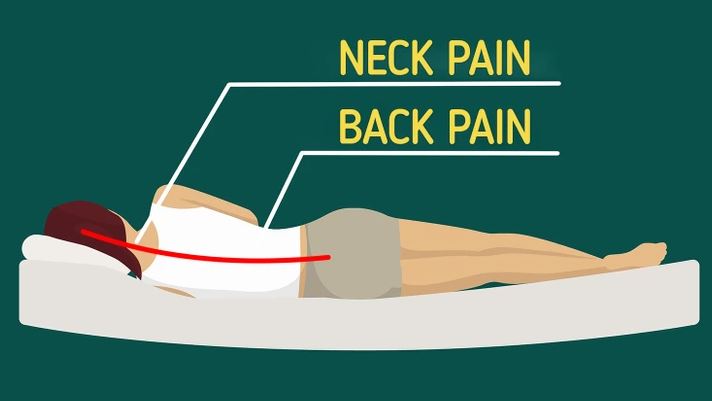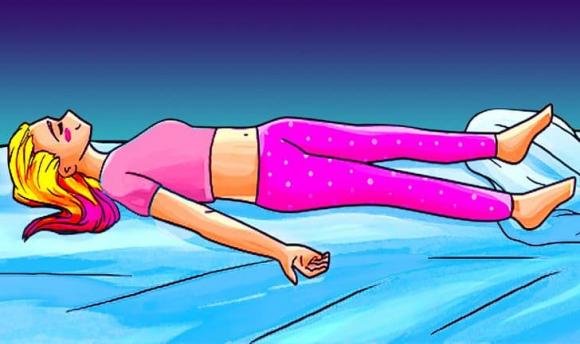
According to Healthy Living, sleeping without a pillow allows your spine to rest in a natural, relaxed state. This can help your back stretch and rest without experiencing any pain. In contrast, using a high pillow can exert pressure on the spine, potentially leading to back fatigue over time.

For individuals who frequently complain of back pain, adopting the habit of sleeping without a pillow before bed might be worth considering.
Many pillows do not support proper posture during sleep and may even worsen your sleeping position. Prolonged neck bending can lead to discomfort, and pillows that are too hard or too soft can cause neck pain.

Have you ever woken up in the morning with neck and shoulder pain after a seemingly good night's sleep? The reason may be that the pillow used all night interfered with blood circulation in the shoulder and neck area, leading to fatigue.
If you wake up with a headache or feeling light-headed, your pillow might be the culprit. Pillows that are too high can cause your head and neck to round forward, creating added tension in the neck muscles. This can lead to morning headaches once you've gotten out of bed.

This can get worse over time, causing you to have sleep disturbances. When you don't get enough sleep, your mood suffers and your body releases more stress hormones.

At night, the body undergoes precious sleep to regenerate cells and facilitate rejuvenation. Throughout the day, cells in the body endure damage from pollution, UV rays, and chronic stress.

By using nothing to support your head and neck during sleep, you allow your body to find the best resting position and enable cells to regenerate. When you wake up in the morning, stretch gently to relax your muscle groups and feel refreshed and relaxed




